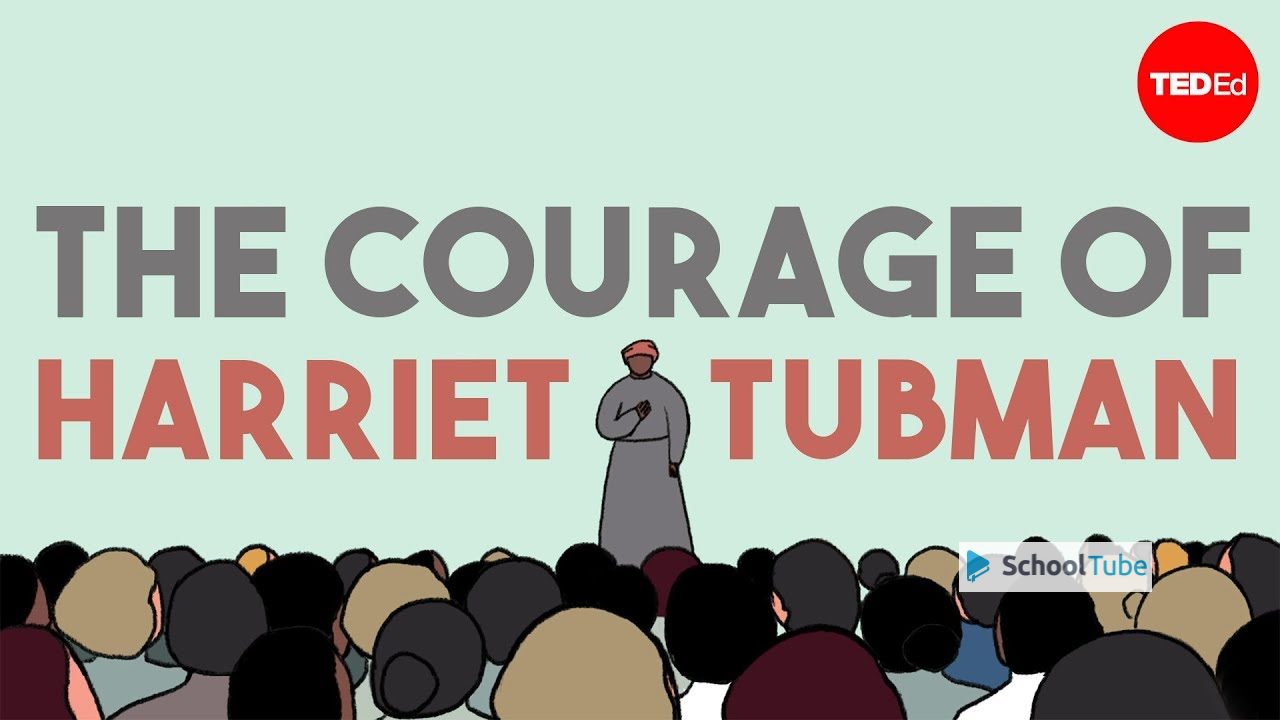Escaping slavery; risking everything to save her family; leading a military raid; championing the cause of women’s suffrage; these are just a handful of the accomplishments of one of America’s most courageous heroes.
Harriet Tubman was born Araminta Ross in Dorchester County, Maryland, in the early 1820s. Born into chattel slavery, Araminta, or Minty, was the fifth of nine children. Two of Minty’s older sisters were sold to a chain gang. Even as a small child, Minty was hired out to different owners, who subjected her to whippings and punishment. Young Minty’s life changed forever on an errand to a neighborhood store. There, an overseer threw a two-pound weight at a fugitive enslaved person, missed, and struck Minty instead. Her injury caused her to experience sleeping spells, which we know of today as narcolepsy, for the rest of her life.
Minty’s owner tried to sell her, but there were no buyers for an enslaved person who fell into sleeping spells. She was instead put to work with her father, Ben Ross, who taught her how to lumber. Lumbering increased Minty’s physical strength and put her in touch with free black sailors who shipped the wood to the North. From them, Minty learned about the secret communications that occurred along trade routes, information that would prove invaluable later in her life.
In this mixed atmosphere of free and enslaved blacks working side by side, Minty met John Tubman, a free black man she married in 1844. After marriage, she renamed herself, Harriet, after her mother. Harriet Tubman’s owner died in 1849. When his widow planned to sell off her enslaved human beings, Harriet feared she would be sold away from everyone she loved.
She had heard of an “underground railroad,” a secret network of safe houses, boat captains, and wagon drivers willing to harbor fugitive enslaved people on their way north. So Tubman fled with two of her brothers, Ben and Harry. They eventually turned back, fearing they were lost. But in one of her sleeping spells, Harriet dreamed that she could fly like a bird. Looking down below, she saw the path to liberation. And in the autumn of 1849, she set out on her own, following the North Star to Pennsylvania, and to freedom.
Tubman returned to the South 13 times to free her niece, brothers, parents, and many others. She earned the nickname Black Moses and worked diligently with fellow abolitionists to help enslaved people escape, first to the North, and later to Canada.
Harriet Tubman worked as a Union army nurse, scout, and spy during the Civil War. In 1863, she became the first woman in the United States history to plan and lead a military raid, liberating nearly 700 enslaved persons in South Carolina.
After the war, the 13th Amendment to the U.S. Constitution legally abolished slavery, while the 14th expanded citizenship and the 15th gave voting rights to formerly enslaved black men. But she was undaunted, and she persisted. She raised funds for formerly enslaved persons and helped build schools and a hospital on their behalf.
In 1888, Tubman became more active in the fight for women’s right to vote. In 1896, she appeared at the founding convention of the National Association of Colored Women in Washington D.C.and later at a woman’s suffrage meeting in Rochester, New York. There she told the audience: “I was a conductor on the Underground Railroad, and I can say what many others cannot. I never ran my train off the track, and I never lost a passenger.”
As her fame grew, various friends and allies helped her in the fight to collect a veteran’s pension for her service in the Union Army. In 1899, she was finally granted $20 a month. In a fitting twist of fate, the United States Treasury announced in 2016 that Tubman’s image will appear on a redesigned twenty-dollar bill.
Harriet Tubman died on March 10, 1913. Even on her deathbed at age 91, she kept the freedom of her people in mind. Her final words were: “I go away to prepare a place for you.”
Harriet Tubman, harriet, slavery, suffrage, The Underground Railroad, civil rights, emancipation proclamation, union, confederacy, civil war, Twenty Dollar Bill, Ted Education, black history, ted ed black history, Janell Hobson, Yan Dan Wong, accomplishments, hero, civil rights activist, Colson Whitehead, freedom fighter, american south, american civil war, union army, secession, history, american history, american slavery, TED, TED-Ed, TED Ed, revolution, anti slavery movement, Teded




